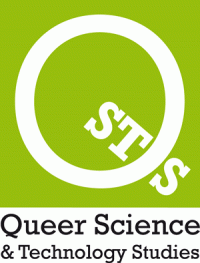
“Queering Diversity” – In Search of the Queer and the Class in Academia and Research
Within the Bologna Process “making our [European higher education] systems more inclusive” is one of the latest main goals, as it was formulated by the ministers of the European Higher Education Area (EHEA) in the Yerevan Communiqué of 2015. Despite efforts to create universities as more open by diversifying students and faculty, academia is still a place of “homosocial reproduction” (Kanter 1977; Möller 2014). The commercial space of technology and engineering also promises remarkable social mobility opportunities for “diverse” individuals (ie. working class, rural, ethnically diverse, queer, etc.), yet these are not kept when examining actual workforce composition. Vivianne Castello put this reality bluntely in her article “Why Most Conversations in Tech About Diversity Are Bullshit — and What to Do About It“.
Intersectionality theory became a great tool to theoretically dissect mono-dimensional shortcomings of diversity efforts, yet Bilge (2013) analyzes how a specific form of academic feminism in tune with the neoliberal knowledge economy works to “depoliticize intersectionality,” neutralizing the critical potential of intersectionality and stripping it from its important power-reflexive analytical potential. Same applies to “diversity studies” which is being translated into managerial voice and then becomes a means to increase profit by and to work more effectively on multinational and multicultural projects, rather than to critically reflect biases and work environments. Class is often completely left out of these conversations. For academia Warnock (2016) describes stereotypes and micro-aggressions working class academics encounter and how their struggling to pass in a middle-class culture leads more and more to increased precarious job situations.
In this issue of Queer STS Forum we seek to unmask shallow applications of diversity in academia, research, and innovation and detach it from the ‘wellness-marketing-corner’ of tech corporations by bringing the question of power into focus: Where specifically is class and queerness in queer and intersectional Science and Technology Studies? We are looking for work that centers power issues and dares to speak about working class identities and advanced discrimination (Dressel et al 1994) lying within production systems of knowledge.
We invite contributions in English that may take experimental forms. In addition to academic journal articles and interviews, we can accommodate video-contributions as well as other multimedia essays and visualizations, since this is an open access online journal.
References
Bilge, Sirma. (2013). “Intersectionality Undone: Saving Intersectionality from Feminist Intersectional Studies.” Du Bois Review: Social Science Research on Race. Special Issue: “Intersectionality: Mapping the Movements of a Theory. Vol.10, Issue 02, p. 405-424.
Castello, Vivianne (2017). “Why Most Conversations in Tech About Diversity Are Bullshit — and What to Do About It”. UX Collective, May 7, 2017.
Dressel, Paula, Weston Hartfield, Bernadette, Gooley, Ruby L. (1994). The Dynamics of Homosocial Reproduction in Academic Institutions. In: Journal of Gender and the Law, Vol 2:37., p. 37-62.
Kanter, Rosabeth Moss (1977) Men and Women of the Corporation. New York: BasicBooks.
Möller, Christina (2014). Als Arbeiterkind zur Professur? – Wissenschaftliche Karrieren und soziale Herkunft. Download: https://www.academics.at/wissenschaft/als-arbeiterkind-zur-professur_57198.html [29-9-2016].
Warnock Deborah M. (2016). Paradise Lost? Patterns and Precarity in Working-Class Academic Narratives. In: Journal of Working-Class Studies Volume 1 Issue 1, December 2016.p.28-44.
Timeline
• Please send an abstract of your idea (250 words) until April 6, 2018 to anita.thaler’at’queersts.com
• Feedback/acceptance letters by May 1, 2018
• Contributions submitted until June 30, 2018
• Publication online December 31, 2018
Editorial Team
Daniela Jauk
Lisa Scheer
Anita Thaler
Photo: © Raimond Spekking / CC BY-SA 4.0 (via Wikimedia Commons) edited by J.A.

One thought on “Queer STS Forum #3: Call for Contributions”